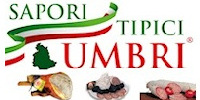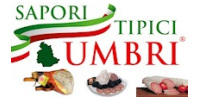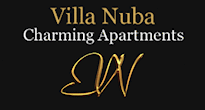Our network:
Wednesday 16 April 2025
Palazzo dei Priori
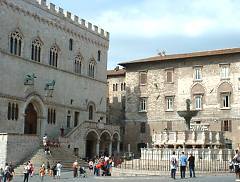 |
| Palazzo dei Priori and Piazza IV Novembre |
A first extension of the building took place between 1333 and 1337, with the addition of two more triple-windows towards the piazza, as well as the stairs and balcony. The lower steps were built in 1902).
After 1353 a second extension was added on the Corso, with six triple-windows, the large doorway and the originally fortified tower that surmounts the access to Via dei Priori.
A third extension was carried out between 1429 and 1443 with the addition of three more triple-windows and the section containing the Collegio del Cambio. A final extension to the rear was built on in the 16th century.
The asymmetrical and irregular facade of the building is the result of the various stages in which it was built. The perimeter of the roof was originally crenellated, symbolising the power of the free city. When Perugia fell to the papal armies the crenellations were demolished in 1610. The upper part of the tower had been destroyed in 1569. The crenellations we see on the roof did not reappear until 1860, with the unification of Italy.
 |
| the Gryphon |
Given their size, early date and the fact that they are in bronze, the statues were probable cast in Venice in 1274.
The portal leads into the Sala dei Notari, formerly the Town Council Hall, which was allocated to the notaries guild in 1582. Their former headquarters, the Palazzetto dei Notari, opposite Palazzo dei Priori in Corso Vannucci, had had to be partially demolished to enlarge the left side of Via Calderini.
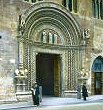 |
| Portal of the Galleria Nazionale dell’Umbria. |
A smaller door on top of the stairs leads to the current Council Hall. Edicts were announced to the city from this spall protruding pulpit.
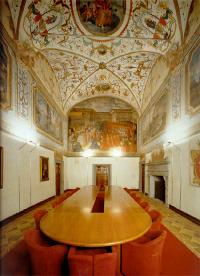 |
| Sala Palazzo dei Priori |
The facade that gives onto Corso Vannucci has another fine Gothic portal, dated 1346. The splay is densely decorated by allegories. The three statues in the lunette represent (from left to right) St. Laurentius, St. Ludevic of Toulouse and St. Herculanus, the patron saints of Perugia.
The lateral pillars rest on crouching lions and are surmounted by two griffins clasping calves in their claws. This is a symbolical allusion to the guild of butchers, one of the main funders of the construction. The portal leads to a typical Medieval atrium, with crossbow arches, coats of arms along the dark walls and a huge chest, once the strong-box of the free city.
A staircase leads from here up to the third floor, that houses the Galleria Nazionale dell’Umbria.
To the right of the Gothic portal on the ground floor there is the entrance to the Collegio della Mercanzia. Beyond runs the passageway to Via dei Priori and the Collegio del Cambio. The same ticket is valid for both visits.
Palazzo dei Priori
Corso Vannucci [old town centre]
Perugia, 06122
APM (Public municipal bus transport authority): stopped bus - Piazza Italia [only 200 meters away]
Linea 4, 6, 7, 9, 10, 11, 12, 13s, 13d, 15, 81, 82, 83, 87, bis28, bis33, bis34, bis41, bis44
Disabled access available
Corso Vannucci [old town centre]
Perugia, 06122
APM (Public municipal bus transport authority): stopped bus - Piazza Italia [only 200 meters away]
Linea 4, 6, 7, 9, 10, 11, 12, 13s, 13d, 15, 81, 82, 83, 87, bis28, bis33, bis34, bis41, bis44
Disabled access available
| Have a comment or question? Send a message to our editors at: contactus@perugiaonline.com |
| Up |
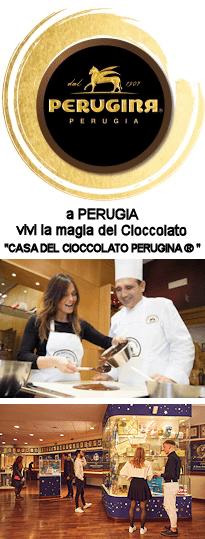
General information
• General travel tips • Weather information
• Tourist guides and visit guided in Umbria
• Local opening times
• Useful - emergency numbers
• Perugia for living
• Hospital Perugia
• Hospital Foligno
• Real Estates and Home Builders
• Homes for sale, property, apartments selling
Transport in town
• Traffic restrictions • Parking
• Buses & Taxis
• Town map
• How to reach Perugia by car
• How to reach Perugia by train
• How to reach Perugia by Air
Transport out of town
• Airport • Trains
• Rent a car
• Local and national buses
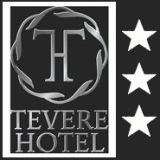
Where to Stay
OFFERS & LAST MINUTE
Where to eat and drink
• Restaurants and Trattorie • Pizzerie
• Pubs
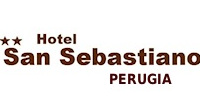
Art and monuments
• Rocca Paolina • Ipogeo dei Volumni
• Etruscan town walls
• Palazzo dei Priori
• Porta Sant' Angelo
• Acqueduct
• Maesta delle Volte
• Collegio della Mercanzia
• Collegio del Cambio
• Fontana Maggiore
Art and religion
• Cathedral of San Lorenzo • Church of San Filippo Neri
• Oratory of San Bernardino
• Church of Sant' Ercolano
• Church of San Domenico
• Church of San Pietro

Museums and galleries
• Historic Museum Perugina • Galleria Nazionale dell'Umbria
• Museo Archeologico
• Palazzo della Penna
• Accademia delle Belle Arti
• Museo di Storia Naturale
• Museo Capitolare San Lorenzo
• Cappella di San Severo
Art and tourist attractions
• Palazzo Capitano del Popolo • Botanical garden
Booking.com
• MUSIC • EXHIBITIONS • COURSES • COMPETITIONS & PRIZES • FOLKLORE • EVENTS • DANCE & BALLET • MEETING & CONFERENCES • CONGRESS • KIDS • Typical Products FAIRS • THEATRE • SPORT EVENTS • LEISURE • LIFESTYLE • WHERE TO DINNER • NIGHTLIFE • CURIOSITY • VIDEO • BOOKS
• Italian language courses
• The Amusement Park : La Citta della Domenica
• Golfing holidays
• Nature Walks Around Cascia:To Cascia via the Scoglio di Santa Rita, the vast rocky pyramid that dominates the village of Roccaporena
• Cooking courses
• Shopping in Perugia
• Perugia Hotel Tevere
• Assisi Villa Giulia
• The islands - boat tours
• Eating well by Lake Trasimene
• Bathing - Lake Trasimene
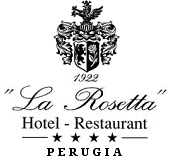
• Wellness in Umbria - Perugia area
• Weddings in Umbria
• Honeymooning in Umbria
• Charme & Relax in Umbria
• Home in Umbria
• Cooking schools
• University for Foreigners Perugia
• Design, Fashion, Visual arts and Communication Schools
• Perugia for Studying
• University
• Italian Army Foreign Language School
• Arts, Music, etc.
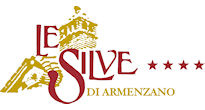
• Handicraft
• Mushrooms
• Truffles
• Extra Virgin Olive Oil
• Wine
• Oleum Evo online selling
• Sapori Tipici Italiani buy now
• From the forest

Perugia News
Sorry, non news - i soggetti interessati a far conoscere le iniziative che avranno luogo nell'ambito del territorio comunale sono invitati a darne comunicazione con congruo anticipo utilizzando l'email redazione@umbriaonline.com
Regional News by Category
• MUSIC • EXHIBITIONS • COURSES • COMPETITIONS & PRIZES • FOLKLORE • EVENTS • DANCE & BALLET • MEETING & CONFERENCES • CONGRESS • KIDS • Typical Products FAIRS • THEATRE • SPORT EVENTS • LEISURE • LIFESTYLE • WHERE TO DINNER • NIGHTLIFE • CURIOSITY • VIDEO • BOOKS
What to see & do
• Itineraries & Museums in Umbria • Italian language courses
• The Amusement Park : La Citta della Domenica
• Golfing holidays
• Nature Walks Around Cascia:To Cascia via the Scoglio di Santa Rita, the vast rocky pyramid that dominates the village of Roccaporena
• Cooking courses
• Shopping in Perugia
• Perugia Hotel Tevere
• Assisi Villa Giulia
Lake Trasimeno
• General Information • The islands - boat tours
• Eating well by Lake Trasimene
• Bathing - Lake Trasimene

SPECIALS in Umbria - Italy
• Gift Ideas for traveling • Wellness in Umbria - Perugia area
• Weddings in Umbria
• Honeymooning in Umbria
• Charme & Relax in Umbria
• Home in Umbria
Education
• Language schools for Foreigners • Cooking schools
• University for Foreigners Perugia
• Design, Fashion, Visual arts and Communication Schools
• Perugia for Studying
• University
• Italian Army Foreign Language School
• Arts, Music, etc.

Typical products
• Norcia Ham IGP • Handicraft
• Mushrooms
• Truffles
• Extra Virgin Olive Oil
• Wine
Flavours to taste
• Salumi Tipici Italiani online selling • Oleum Evo online selling
• Sapori Tipici Italiani buy now
• From the forest
